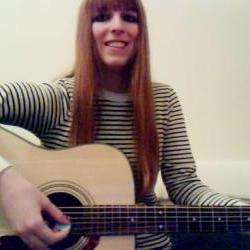Thursday night at The Kitchen, the exceptional new music ensemble Either/Or performed a diverse selection of five works all composed in the past two years. The first night of the group’s annual spring festival featured more familiar and expected instruments – violin, cello, piano – joined by the less conventional cimbalom and komungo, which added wondrously strange textures to an already unique program.
Even the piano, though, did not sound entirely “normal” during Richard Carrick’s interpretation of Icelandic composer Anna Thorvaldsdottir’s Scape in its New York première. The score indicates that the piano should be prepared with “aluminum thimble, ebow, and screws”, meaning these objects were used to alter the sound of the hammers striking the strings in the piano. Dr Carrick, one of the co-founders of Either/Or along with David Shively, began the piece by reaching across the instrument and creating fragile shimmers along the strings. These delicate gestures contrasted with the low, solitary notes, struck with his left hand, reverberating through the high-ceilinged venue. More intricate phrases rippled outward from there, incorporating familiar pitches with the clangs produced by the metal accoutrements and with a long scraping sound that gave me goosebumps. A solemn final note was sustained by the pedal even after Dr Carrick left the stage. My ears stretched as it dissolved into silence; eventually an impatient audience member started clapping and Dr Carrick returned for a quick bow.
Other works included two premières by American composers: the New York première of Ian Power’s untitled for viola/cello duo, and the world première of Anthony Coleman’s Atropine, for piano, violin, cello, and percussion. During the former, violist Erin Wright and cellist Alex Waterman played held tones and quasi-scales in unison, cutting off abruptly like a teacher and student frustrated during a lesson. Their bows bounced across the strings in an energetic delivery of the piece. During Atropine, Dr Carrick returned to the piano to be joined by violin, cello, and vibraphone. The work featured short grasping phrases falling continually onto opaque chords, with the piano and cello eventually getting stuck in a sort of rhythmic rut, and ending with a string of notes falling upwards.
Canadian composer François Rose’s Rosée du matin, flocons du soir began with surreal sounds from the cimbalom – a trapezoidal hammered dulcimer, played by David Shively – that sounded like heat moving slowly across air, maybe the sonic embodiment of the weather we’ve been experiencing here in New York. The violin part, performed by Jennifer Choi, swept across the cimbalom in breathy tremolos, until Mr Shively began striking out pitches on his instrument, and then plucking out sparse staccato notes during the second movement while Ms Choi’s violin whispered alongside him. The third movement was livelier but kept the sense of surrealism, like a hoedown gone terribly wonderfully wrong. In another acute transition, the final movement opened with a loping, Nancarrow-esque spatter of notes from the cimbalom before both instruments scampered to the conclusion.
The last item on the program was the world première of Tilings, Jin Hi Kim’s 2013 composition for flutes, oboe, clarinets, violin, cello, percussion, and komungo: a fourth-century Korean fretted zither, which the composer performed alongside the members of Either/Or. A komungo virtuoso as well as an established composer, Ms Kim has strived to bring Korean sounds to the Western music world, and with Tilings we were treated to a riveting mixture of timbres. Richard Carrick conducted the legato swirls overlapping one after another with squeaks and trills and motoric repetitions. Gradually the sounds became denser and louder, until it seemed as if there were many more instruments on the stage than there actually were. It was an engaging, magnetic performance, one that offered a satisfactory taste of rare sounds while making you crave even more.


